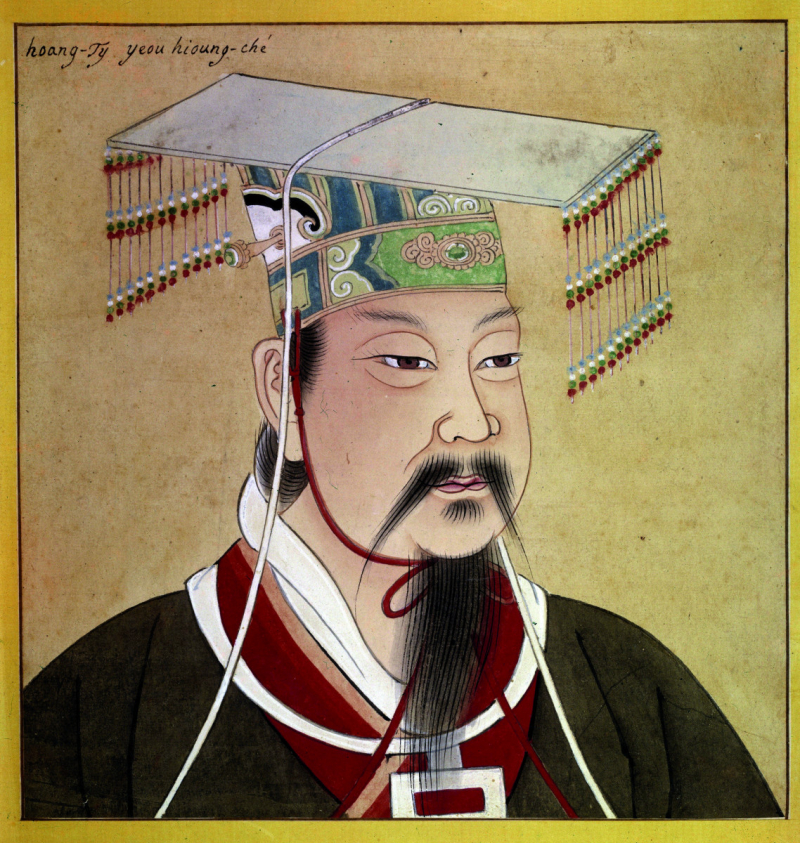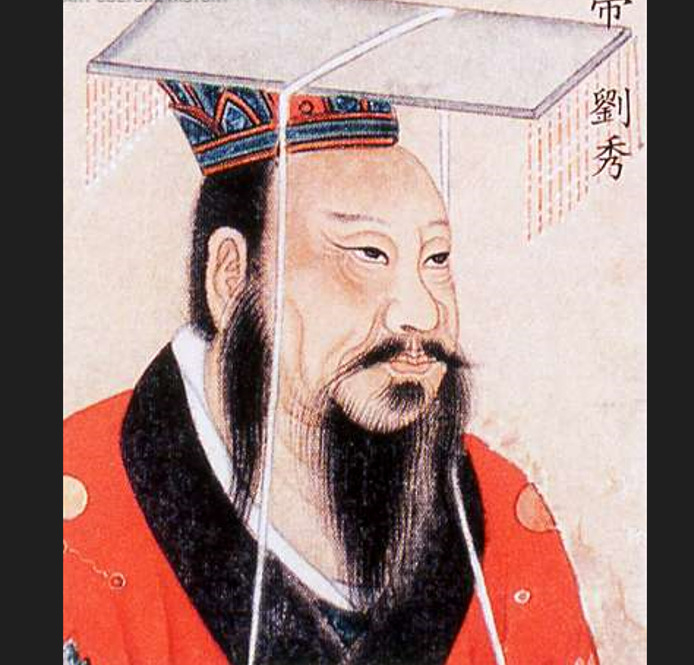Han Guangwu (25AD - 57AD)

Emperor Guangwu of Han was a Chinese monarch. After re-establishing the Han dynasty in AD 25, he ruled as its emperor and established the Eastern Han (Later Han) dynasty.
Guangwu was one of the many descendants of the Han imperial family. He became one of the numerous members of the defunct dynasty claiming the imperial throne following Wang Mang's takeover of the Han throne and the civil war that followed with the collapse of the Xin dynasty. After rallying forces and declaring himself emperor, he defeated his rivals, destroyed Chimei's peasant army which was famous for its disorganization and brutality, and finally unified China in 36 AD.
The Eastern Han (Later Han) dynasty was formed by him in Luoyang, 335 kilometers east of the former capital Chang'an (modern-day Xi'an). In an effort to address some of the structural inequalities that led to the demise of the Western Han, Guangwu carried out a number of reforms, most notably the land reform. His reforms opened the Han Dynasty to a new period of existence for 200 years.
Emperor Guangwu is among the few rulers in Chinese history who possessed both assertiveness and benevolence. He frequently chose non-violent methods of administration over violent ones in the territories he controlled. He is particularly noteworthy as a rare example of an emperor who established a dynasty without exterminating any people and was resentful of any generals or bureaucrats who assisted in his conquest.
In short, Emperor Guangwu of Han:
- ruled and established the Eastern Han dynasty after re-establishing the Han dynasty in AD 25.
- defeated his rivals, destroyed Chimei's peasant army, and finally unified China in 36 AD.
- as a rule, Guangwu carried out a number of reforms, most notably the land reform.
- had both assertiveness and benevolence.
















